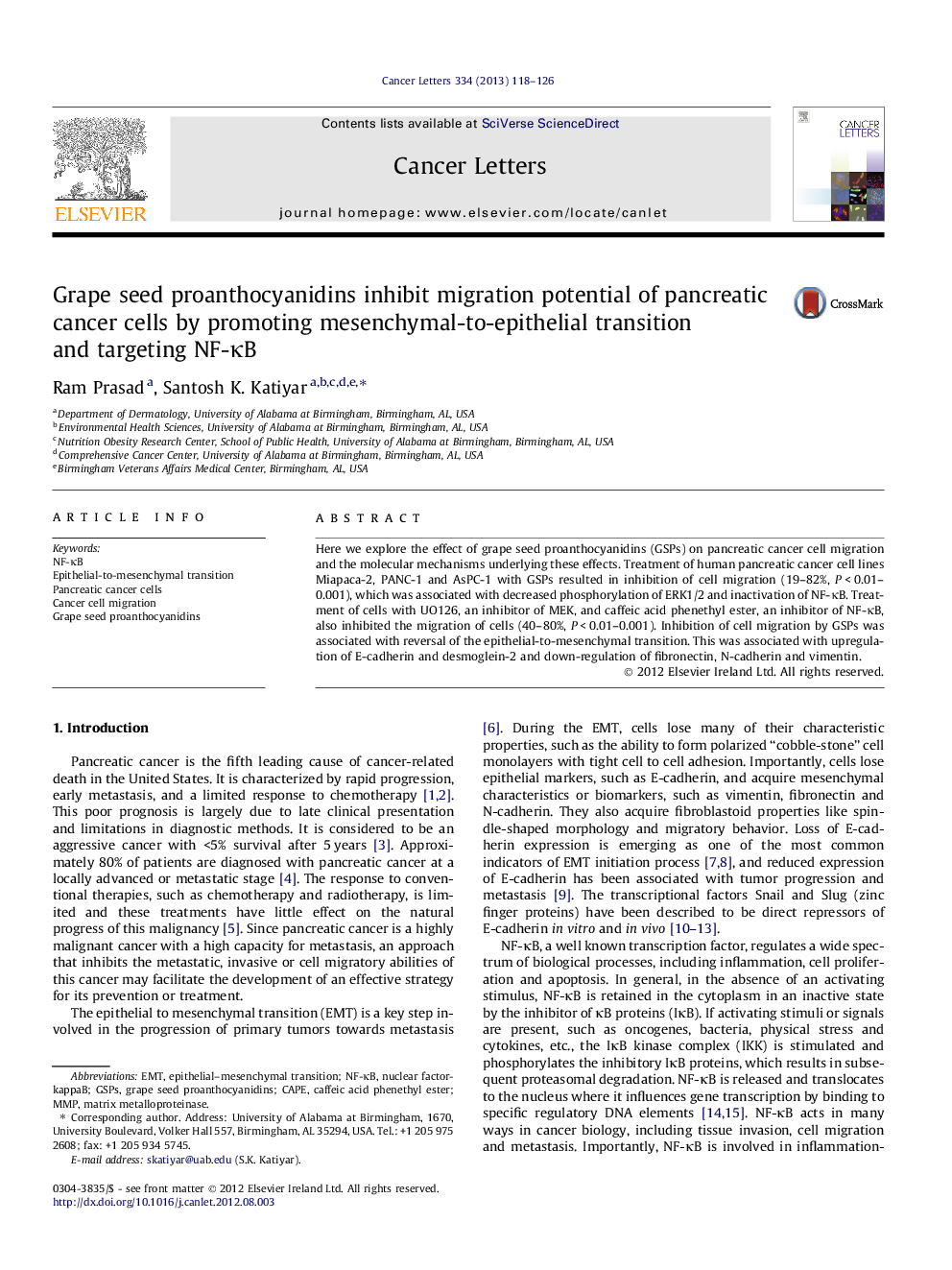| Article ID | Journal | Published Year | Pages | File Type |
|---|---|---|---|---|
| 2112995 | Cancer Letters | 2013 | 9 Pages |
Here we explore the effect of grape seed proanthocyanidins (GSPs) on pancreatic cancer cell migration and the molecular mechanisms underlying these effects. Treatment of human pancreatic cancer cell lines Miapaca-2, PANC-1 and AsPC-1 with GSPs resulted in inhibition of cell migration (19–82%, P < 0.01–0.001), which was associated with decreased phosphorylation of ERK1/2 and inactivation of NF-κB. Treatment of cells with UO126, an inhibitor of MEK, and caffeic acid phenethyl ester, an inhibitor of NF-κB, also inhibited the migration of cells (40–80%, P < 0.01–0.001). Inhibition of cell migration by GSPs was associated with reversal of the epithelial-to-mesenchymal transition. This was associated with upregulation of E-cadherin and desmoglein-2 and down-regulation of fibronectin, N-cadherin and vimentin.
► Pancreatic cancer is a highly malignant cancer with a high capacity to metastasis. ► GSPs inhibit the cell migration or invasive potential of pancreatic cancer cells. ► GSPs down regulate the expression of NF-κB and ERK1/2 in pancreatic cancer cells. ► GSPs inhibit pancreatic cancer cell migration by reversal of EMT.
